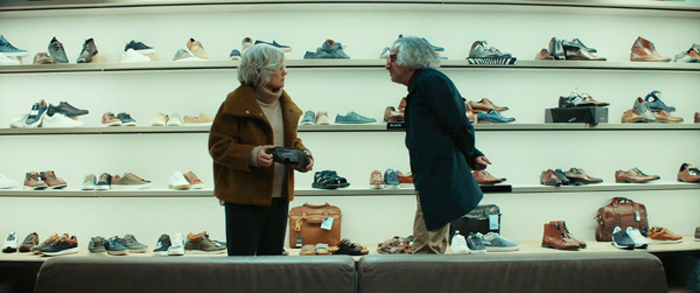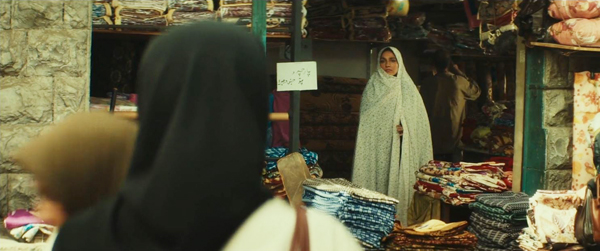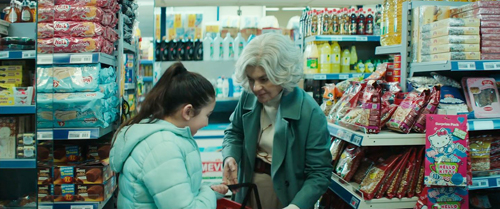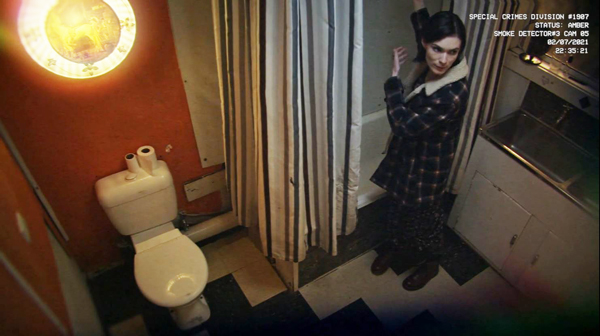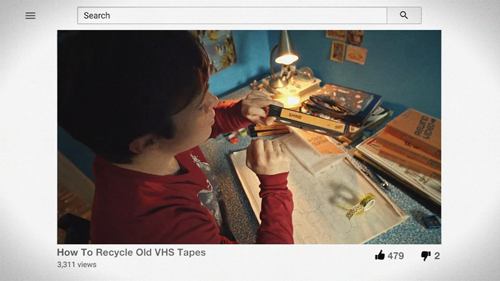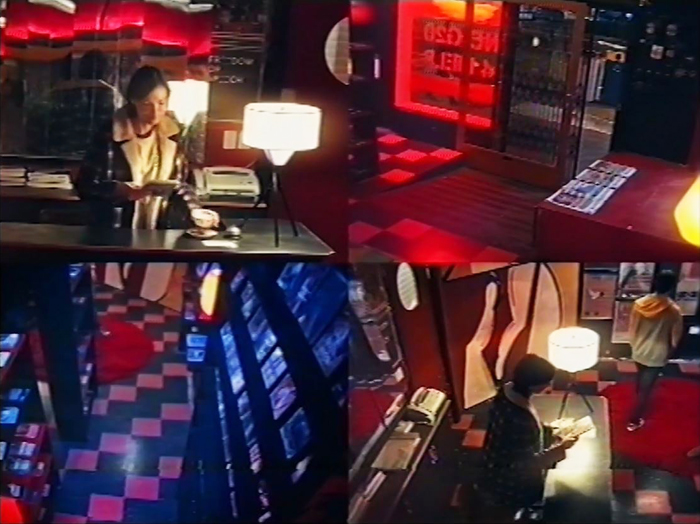Rotterdam surprises
Friday | February 5, 2021 open printable version
open printable version
Mitra (2021)
Kristin here:
On Saturday morning (8:30 am our time), the International Film Festival Rotterdam will be screening its annual Surprise Film. We’re naturally curious to learn what it is. But Rotterdam comes so early in the year that often we go into its other offerings knowing almost nothing about them. Here are two of the very pleasant surprises from recent days.
Iranian cinema from the Netherlands
Kaweh Modiri, the director of Mitra, was born in Iran but has lived in the Netherlands since he was six years old. Still, he remains concerned with Iranian issues and clearly has been influenced by the flourishing Iranian art cinema of recent decades.
Asghar Farhadi’s success in international festivals and territories has been the most influential instance recently, at least outside of Iran. His plots are often built around conflicts, not between good and bad people, but behind people who clash because of cross-purposes. Late revelations and tortured discussions lead to reconciliations that are not the happy endings of Hollywood films but instead are resigned agreements to admit mistakes and make compromises.
Mitra is such a film, but it is based around more politically based conflicts than Farhadi has used–ones that have life and death consequences for those involved.
The film moves between two settings and eras: Tehran in 1981-82, the years shortly after the ouster of the Shah, and the Netherlands in 2019, the fortieth anniversary of that revolution. The opening is set in 1982, when the heroine, Haleh, receives an abrupt, unexpected telephone calls announcing that her daughter Mitra has been executed. We move then to 2019, when Haleh, now an academic in the Netherlands, addresses a conference on “The Islamic Revolution at Forty.” Soon she is visited by members of “The Organization,” a group aimed at bringing down the current government of Iran. They tell Haleh that Leyla, whose betrayal of Mitra caused her death, has arrived with her daughter in the Netherlands. She goes under the name Sale, having appealed for refuge status. The Organization wants Haleh’s confirmation that Sale is indeed Leyla.
The rest of the plot centers around a shifting relationship, as Haleh vows revenge on Leyla. Her goal is complicated by the fact that she has never actually seen Leyla, having only heard her voice. Nevertheless, she calls Sale and is convinced that she recognizes the woman’s voice, even after nearly forty years. Once they meet, however, Haleh seemingly bonds with Sale and her endearing daughter Nilu. Indeed, Haleh’s attraction to Nilu hints at her possible acceptance of Sale as a substitute daughter and Nilu as a granddaughter.
Interspersed with this story are flashbacks to the younger Haleh’s 1981 experiences, when Mitra, who has joined the resistance in Iran, is still alive. Scenes like a clandestine meeting with Mitra at a crowded market emphasize Haleh’s love for her daughter (top of section).
Modiri expertly lures us into sympathizing with all the characters involved. To the end we remain uncertain as to whether Sale, who after some doubts accepts Haleh as a friend and even as a substitute mother in a new land, is actually the treacherous Leyla. Even if she is, is it worth ruining young Nilu’s life to turn Sale in to the ruthless Organization?
Supporting all this is Haleh’s relationship with her brother Mohsen, who at first seems a somewhat comic, eccentric sidekick but is later revealed to be suffering the effects of torture and lengthy imprisonment in Iran. His exchanges with Haleh initially seem like sibling bickering, but he becomes the moral compass that holds her together as she pursues revenge (see top).
Mitra starts out seeming to be a conventional revenge story, but its moral and personal shifts and surprises lead to a moving and not-quite-resolved ending.
The film has had its world premiere at the IFFR and is due for a May 20 release in the Netherlands. I hope it plays other festivals and travels further, because it is a definite contribution to the continuation of world interest in Iranian cinema. Like other such Iranian films, it had to be made elsewhere (the scenes set in Iran were shot in Jordan), but it carries forward what we have loved about Iranian films.
An Australian surveillance-cam thriller
Jonathan Ogilvie’s Lone Wolf (2021) adopts the new convention of creating a story based largely on surveillance and cell-phone footage. In a frame story Kylie, a Special Crimes Sergeant, bursts into the office of an unnamed Police Commissioner and demands that he watch a video she has secretly compiled from a mass of such footage.
The inner story is seemingly set more-or-less in the present day, but it’s a slightly alternative world in which surveillance has become even more pervasive than it already is. The read-outs in the images reveal that cameras are spying on the characters from such household devices as TVs and smoke detectors. One of these is, ironically, in a bathroom where Winnie sneaks the occasional cigarette by an open window (above). How Kylie gets access to all of these is never explained, and the premise is implausible–especially in scenes built around extensive, undamaged footage which she has somehow managed to extract from a phone that has been through a bomb explosion.
If one stifles such doubts, however, the tale Kylie’s film tells is an absorbing one, full of twists and turns. It centers on Conrad and Winnie, a couple who run a book/video-rental/sex shop and do occasional jobs for underground political groups. They are not the most appealing characters, but they gain our sympathy through their devotion to Winnie’s charming little brother Stevie, who has Down’s Syndrome and an insatiable curiosity about the world.
Australia is soon to host a G20 meeting, and a man from a radical group asks Conrad to set up a “victimless atrocity” in the form of a bomb explosion in a deserted area. At first Conrad refuses, but when offered a large sum, he gives in. Despite the grimness of this plot thread, there is quite a bit of humor in the film, provided by Stevie and by a group of Conrad’s misfit friends who gather to play cards above the shop. The combination of found footage also creates occasionally amusing moments, as when the film-within-a-film includes an instructional YouTube-style video that Stevie has posted or poor-quality footage from an old security camera in the shop that Winnie and Conrad think has been turned off (bottom).
The consequences of the bomb plot introduce a grim twist, but the return to the frame story creates a more gratifying one as Kylie reveals why she has pressed her video upon the Commissioner.
While Rotterdam provided Lone Wolf‘s world premiere, it has a distributor in Australia, though its August, 2020 release was postponed by the pandemic. Ogilvie hopes it will have wide theatrical play after a possible in-person premiere at the Melbourne International Film Festival this coming August.
Again, thanks to Gerwin Tamsma, Monika Hyatt, Frédérique Nijman, and their colleagues at the International Film Festival Rotterdam for allowing us to discover these surprises!
Lone Wolf (2021)












